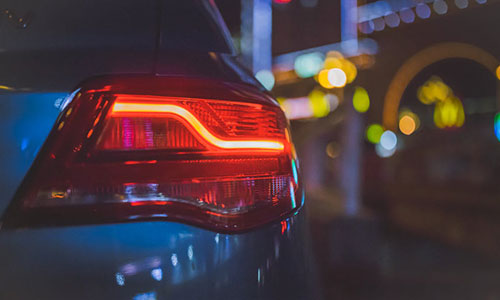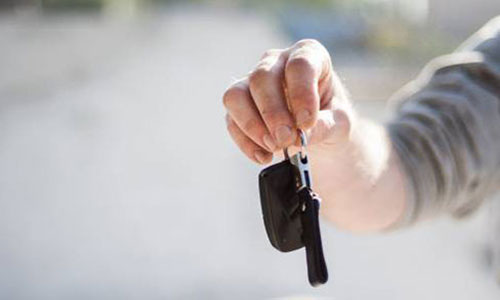Driving without insurance: What you need to know
30 second car valuation
Who needs car insurance?
It is a legal requirement in the UK to have at least third-party car insurance if you are driving on public roads. There are various levels of car insurance ranging from third-party which will cover the costs of damage to another vehicle, through to comprehensive insurance which covers all costs including any damage to your own car too.
If you don’t use your car and want to avoid taxing or insuring your vehicle, you will need to declare it as not in use by applying for a Statutory Off Road Notification (SORN). If your car has been declared as a SORN, you must keep the car on private land and it must not be left on a public road.
You even need insurance when selling a car, by UK law.
Read more: SORN: what you need to know
Will I get stopped by the police for driving uninsured?

Police have access to the DVLA database where every car insurance policy is stored. As soon as a new insurance policy is taken out, it will be added to the database which is used to continuously monitor which cars are insured, and those that aren’t.
Police use Automatic Number Plate Recognition (ANPR) cameras that enable them to check your registration plate against the DVLA database. Police can also request to see your insurance certificate or other proof of valid insurance at any time during a routine traffic stop.
What are the penalties for driving without insurance?

If you are caught driving without insurance you are likely to receive 6 points on your licence and a fine of £300. If your case goes to court, the outcome could be worse - you may be disqualified from driving and face an unlimited fine. If you are found guilty, an IN10 conviction code will remain on your licence for 4 years, and you will need to disclose this information to your insurance provider for a further year, which may increase your insurance premium.
Driving uninsured in the UK gives police the power to seize and destroy your car. If the police seize your vehicle, you will be made aware of how to get your car back and the length of time they’ll store the car before it is destroyed.
When is it OK for my car to be uninsured?
There are a number of exceptions where your car doesn’t need to be insured, which includes if a car is or has been:
- Declared as off the road by applying for a SORN
- Registered as ‘in trade’ with the DVLA and insured with a trade policy
- Off public roads before 1 February 1998
- Scrapped, stolen or exported without notice
Does comprehensive insurance allow me to drive any vehicle?

Historically, Driving Other Cars (DOC) was included on most comprehensive insurance policies, which allowed you to drive a car not listed on your policy with third-party cover. Whilst some insurers still provide this as standard, it is recommended that you read your policy or check with the insurance company if it is included, or you could be breaking the law.
Another misconception is that you can drive another car on a daily basis - the intention of DOC is that you are able to use another vehicle in the case of an emergency. Therefore, if you regularly drive another vehicle using DOC, you may want to get your name added to the policy instead.
Does driving without tax or an MOT invalidate my insurance?

Driving without tax or a valid MOT certificate can invalidate your insurance policy, meaning if you forget to renew either you could be running the risk of a fine, points on your licence, or a disqualification from driving. You can use our free MOT check to see if your car has a valid MOT certificate.
Similarly, if you let your insurance policy lapse, the police will see that your car is uninsured and take the appropriate action. Whilst some insurers will automatically renew your policy, they aren’t obliged to do so, therefore it is the responsibility of the driver to ensure the car is insured before driving on public roads.
What to do if you're in an accident with an uninsured driver
The general course of action after being involved in an accident is to trade insurance details and establish who was at fault for the collision. It is also recommended that witness statements are taken and contact details traded in case the liable party later states they weren’t at fault.
Unfortunately, collisions may occur with uninsured drivers. In these cases, it is recommended that the accident is reported to the police immediately, making sure you get the vehicle details, details of the driver, contact details, and any further evidence such as photos of the damage.
Some insurance policies will protect your NCD (No Claims Discount) if you are hit by an uninsured driver, whilst others will require you to pay your excess to fix the damage to your car. If you are hit by an uninsured driver, the Motor Insurers’ Bureau may be able to provide compensation if your insurance company doesn’t provide cover.
What is the impact of driving without insurance?
It is estimated that the economic impact of uninsured drivers to insurance companies is around £400 million per year, which is ultimately added onto the premiums of honest motorists with valid policies. Motorists in London, Birmingham, Manchester and West Yorkshire are the worst affected areas in the UK, with the most uninsured drivers per capita.
Frequently asked questions
If you are caught for driving without valid insurance, you can receive a fine of up to £300 on the spot. If the case is taken to court, there is a possibility that the fine could be higher, with no limit set for the maximum amount. Your vehicle could also be seized by the police and destroyed in some cases.
You can receive 6-8 penalty points on your driving licence if you are an uninsured driver due to being a danger to other road users, pedestrians and yourself. This means that if you have been driving for less than a year you would be disqualified from driving for a fixed period and would have to retake your test after the specified period to be able to drive again.
If you know somebody who is driving without insurance, you should report them to the police by dialling 101. If you believe that life is in danger, you should alternatively dial 999 immediately.
An IN10 endorsement (using a vehicle that is uninsured to the legal minimum requirement) will stay on your record for four years from the date of the offence. The offence will also need to be disclosed to your insurance provider for five years from the date of the offence, which may result in increased insurance premiums.
Related articles
What our customers think




